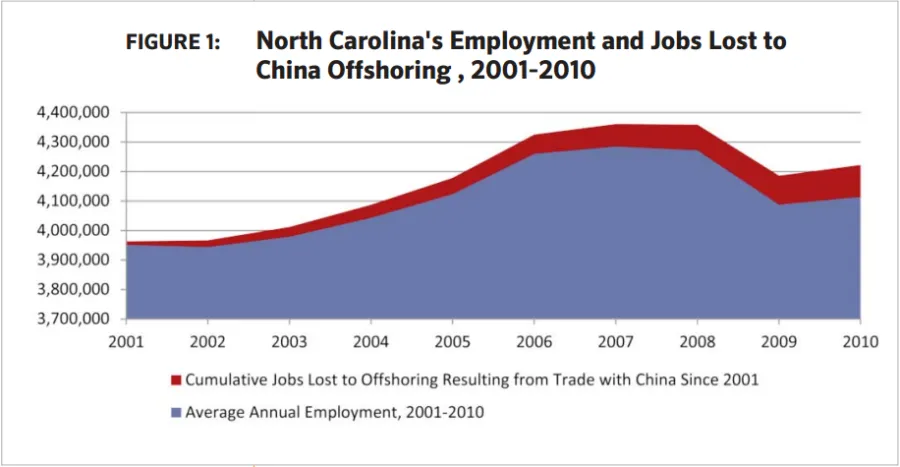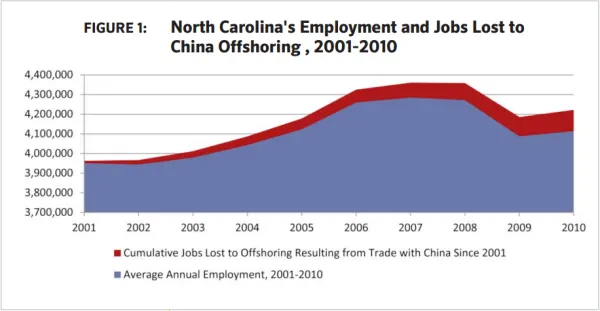Offshoring jobs continues to drag down N.C.'s economy

Practice that pads corporate profits producing pain for workers
We have a jobs crisis in our state and in this country. That is why we have pushed so hard for Congress to pass legislation like the American Jobs Act and the Bring Jobs Home Act - and why we have been so disappointed that our broken Congress has failed to move either piece of legislation.
That's especially true for the Bring Jobs Home Act, a bill which Republicans in the U.S. Senate - including our own Richard Burr - succeeded in blocking even before Senators could debate it on the merits. Because this "insourcing" bill failed, big corporations and private equity firms still get tax breaks to ship our jobs out of the country when we should be using taxpayer money to support bringing those jobs back to the United States.
A recent brief by the Budget and Tax Center underlines just how serious a problem offshoring has been for North Carolina's economy.
Without all the losses from corporations shipping our jobs to China since 2001 and to Mexico in just one year, 2010, unemployment in North Carolina would be down almost to where it was before the Great Recession:
Indeed, absent the job losses from 10 years of offshoring, the state’s employment would have totaled about 4,220,000 in 2010, just 65,000 jobs below the state’s prerecession employment levels in 2007. In other words, North Carolina would have almost recovered from recession-related job losses by 2010, mirroring the other recoveries of the recent past.
Not only is North Carolina losing more jobs to offshoring than exports creates, the corporate race-to-the-bottom on wages and benefits - the greed which drives companies to fire American workers and leave the country - is eliminating the middle-wage jobs we need to have a middle class, says the BTC:
Offshoring in North Carolina has been accompanied by the emergence of a two-tier labor market, in which many workers in offshored industries—particularly manufacturing—are increasingly shunted into fast-growing low-wage and low-skill occupations, including Food Preparation (which pays $8.27 an hour), Home Health Aides ($9.73 an hour), and Cashiers ($8.50 an hour). At the same time, the state is seeing growth in high-wage and high-skill occupations like Nurses, Physicians, Office Managers, and Post-Secondary Teachers, which pay between $22.01 and $41.12, which require significant training and education. Unfortunately, there is little growth in the middle-wage, middle-skill occupations in between, like those traditionally associated with manufacturing that provided a reasonably secure path to middle-class prosperity.

